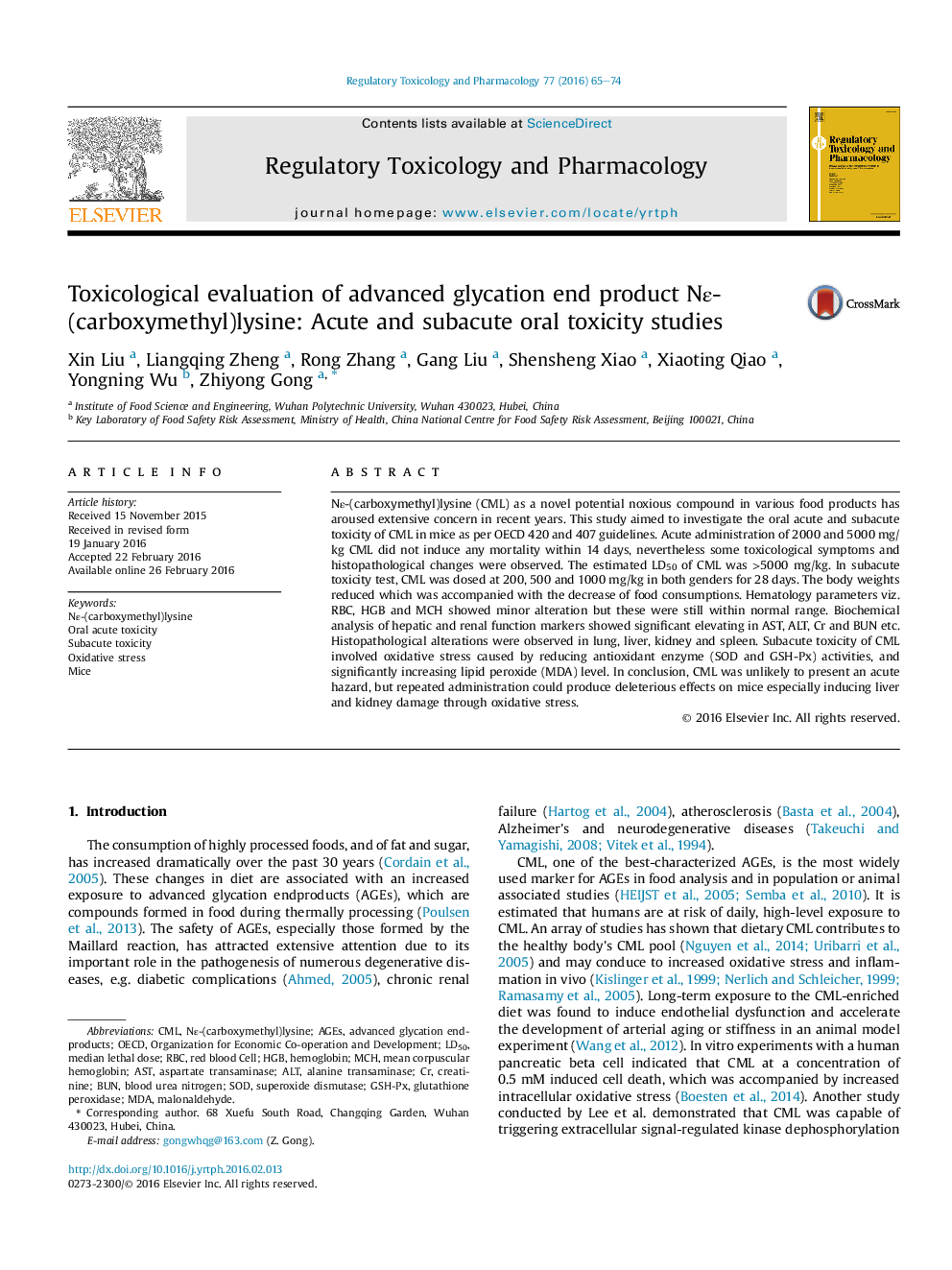| کد مقاله | کد نشریه | سال انتشار | مقاله انگلیسی | نسخه تمام متن |
|---|---|---|---|---|
| 5855953 | 1562126 | 2016 | 10 صفحه PDF | دانلود رایگان |

- CML is a novel potential noxious compound in various food products.
- Oral acute and subacute toxicity of CML was investigated in mice.
- The estimated oral LD50 of CML was >5000Â mg/kg, bw.
- Repeated administration of CML could produce deleterious effects on mice.
- Oxidative stress was involved in CML induced liver and kidney injuries.
Nε-(carboxymethyl)lysine (CML) as a novel potential noxious compound in various food products has aroused extensive concern in recent years. This study aimed to investigate the oral acute and subacute toxicity of CML in mice as per OECD 420 and 407 guidelines. Acute administration of 2000 and 5000 mg/kg CML did not induce any mortality within 14 days, nevertheless some toxicological symptoms and histopathological changes were observed. The estimated LD50 of CML was >5000 mg/kg. In subacute toxicity test, CML was dosed at 200, 500 and 1000 mg/kg in both genders for 28 days. The body weights reduced which was accompanied with the decrease of food consumptions. Hematology parameters viz. RBC, HGB and MCH showed minor alteration but these were still within normal range. Biochemical analysis of hepatic and renal function markers showed significant elevating in AST, ALT, Cr and BUN etc. Histopathological alterations were observed in lung, liver, kidney and spleen. Subacute toxicity of CML involved oxidative stress caused by reducing antioxidant enzyme (SOD and GSH-Px) activities, and significantly increasing lipid peroxide (MDA) level. In conclusion, CML was unlikely to present an acute hazard, but repeated administration could produce deleterious effects on mice especially inducing liver and kidney damage through oxidative stress.
Journal: Regulatory Toxicology and Pharmacology - Volume 77, June 2016, Pages 65-74